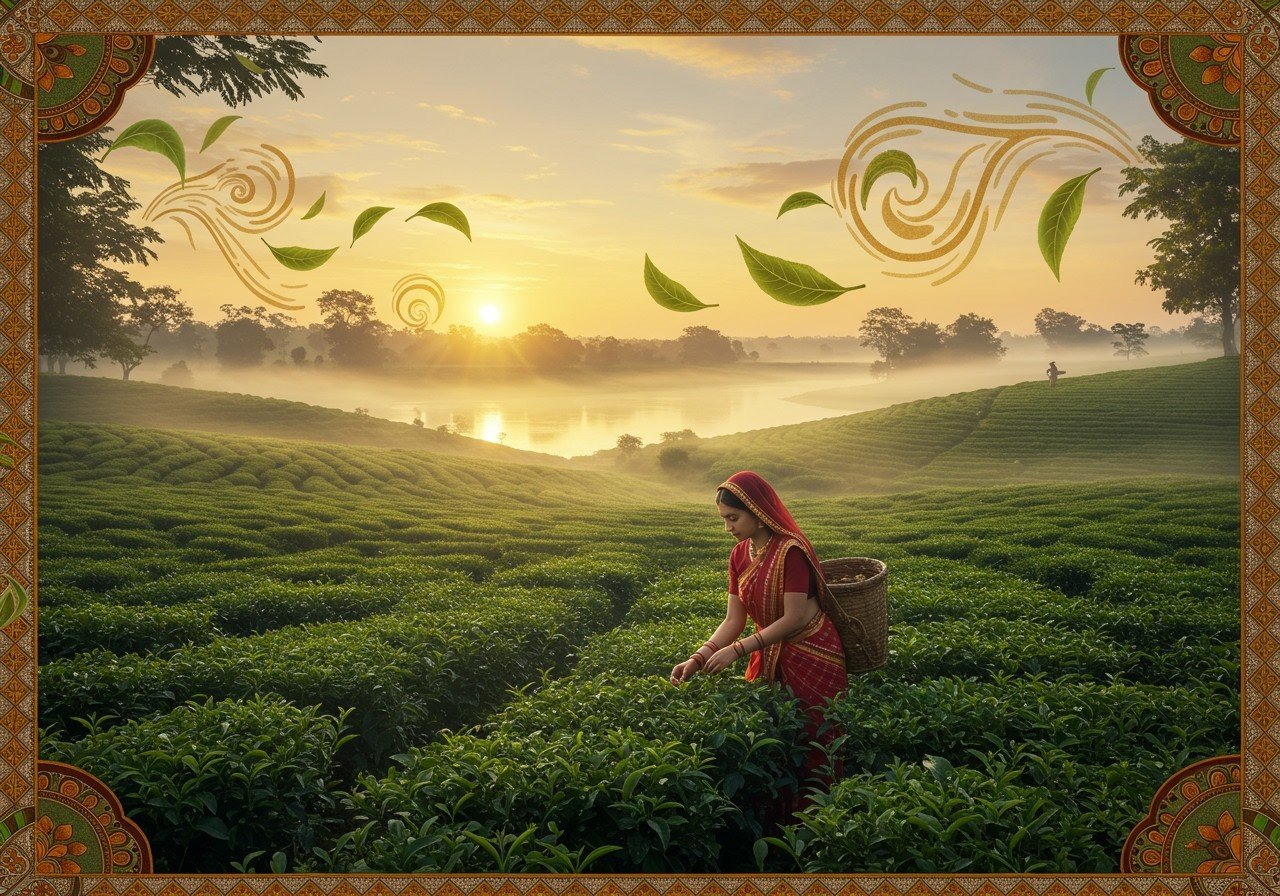
The captivating story of Assam tea unfolds in the verdant landscapes of northeastern India. Assam, renowned for its rich cultural heritage and biodiversity, has been the epicenter of India’s tea production for over a century. This blog post delves into the history of Assam tea, tracing its path from discovery to its current status as a globally cherished beverage.
Origins of Tea in Assam
In the early 19th century, during their quest for an alternative to Chinese tea, the British stumbled upon a remarkable discovery. In 1823, Scottish explorer Robert Bruce encountered indigenous tea plants thriving in the Assam region. These plants, distinct from their Chinese counterparts, had been utilized by the Singpho tribe for generations. This pivotal moment marked the beginning of Assam’s foray into the global tea industry.
Development of the Assam Tea Industry
With the backing of the British East India Company, tea plantations began to emerge in Assam during the 1830s. The formation of the Assam Tea Company in 1839 ushered in an era of organized tea cultivation. The introduction of the Camellia sinensis var. assamica plant paved the way for large-scale production. By the mid-19th century, Assam tea gained popularity in England, fueling a surge in the industry. The development of railways and infrastructure further propelled the expansion of tea plantations.
Economic Impact on Assam
The tea industry has profoundly impacted Assam’s economy, providing livelihoods for millions through direct and indirect employment. Tea cultivation has spurred the growth of small towns and markets surrounding the plantations. Foreign investment has infused the local economy, despite challenges such as labor issues and fluctuating global tea prices. Assam tea continues to play a vital role in the state’s economic well-being.
Cultural Significance of Assam Tea
Tea is deeply intertwined with the cultural fabric of Assam. Unique rituals and traditions surrounding tea consumption have evolved among the Assamese people. A staple beverage in households, tea is an integral part of festivals and ceremonies. Its cultural significance is reflected in literature, music, and art forms. Tea gardens stand as symbols of pride and heritage for the people of Assam.
Challenges and Modern Developments
The Assam tea industry navigates challenges such as labor disputes, climate change, and competition. Modern advancements offer solutions to these issues. Sustainable farming practices and technological innovations have enhanced productivity and quality. Efforts to diversify tea products and explore new markets are underway. Government policies and international collaborations provide support to the industry.
Global Recognition and Future Prospects
Assam tea is celebrated worldwide for its robust flavor and captivating aroma. Having garnered awards and established a strong international presence, its future appears promising. The increasing demand for organic and specialty teas presents new opportunities. Innovations in packaging and marketing further enhance its global appeal.
The Toklai Tea Research Center
Assam is home to the Toklai Tea Research Center, the world’s first and largest tea research center. Established in 1911, this institution plays a crucial role in researching and refining tea production techniques.
Poojn.in: Your Gateway to Authentic Tea Accessories
Poojn.in, India’s largest cultural goods and services store, offers a curated selection of products to enhance your tea-drinking experience:
-
Talmakhana Seeds: These seeds, often enjoyed as a snack, can complement your tea time.
-
Suhaga (Borax): Traditionally used in various rituals, Suhaga can also be used in small quantities in certain tea preparations.
-
Mangalam Camphor Tablets: Create a calming atmosphere during your tea time with the soothing aroma of camphor.
Visit poojn.in today to explore our diverse collection and elevate your tea rituals.
Conclusion
Assam tea, with its captivating history and profound cultural significance, holds a cherished place in India’s heritage. From its discovery by Robert Bruce in 1823 to its global acclaim today, Assam tea’s journey has spanned centuries, contributing to economic prosperity and cultural pride in the region. Despite facing contemporary challenges, the industry continues to adapt through sustainable practices and technological advancements, ensuring that Assam tea maintains its esteemed position in the world of teas. As we look ahead, the legacy of Assam tea promises to flourish, offering its delightful flavors and aromas to tea enthusiasts across the globe.


